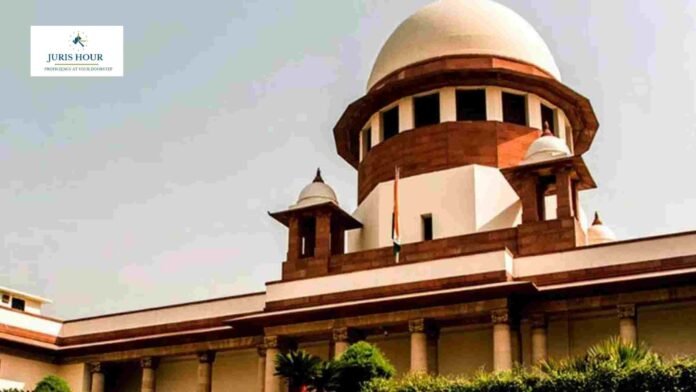In a significant opinion on the long-standing constitutional friction between States and the Governor’s office, the Supreme Court today held that Governors cannot indefinitely withhold assent to Bills passed by State Legislatures. Reiterating the spirit of cooperative federalism, the Court stressed that Governors must engage in a “dialogue process” with the elected House rather than adopt an obstructionist stance.
A Constitution Bench of five judges, led by the Chief Justice of India, delivered its opinion on a Presidential Reference involving 14 complex questions relating to the scope of Articles 200 and 201, which govern gubernatorial and presidential assent to State Bills.
However, even as the Court emphasised accountability, it simultaneously ruled that constitutional courts cannot prescribe timelines for the Governor or the President to act on Bills, as doing so would violate the doctrine of separation of powers.
Key Constitutional Finding: Governor Has No Power to ‘Withhold Assent’ Simpliciter
The Court undertook a close textual interpretation of Article 200. The major conclusion:
1. Governor has only three options under Article 200:
- Grant assent,
- Reserve the Bill for the President, or
- Return the Bill to the Legislature with comments (if it is not a Money Bill).
The Bench held that “withholding assent” is not an independent fourth option. If the Governor chooses to withhold assent, he must necessarily return the Bill to the House, unless it is a Money Bill.
This answers the first query in the Presidential Reference against the Union’s contention that four options existed.
Governor Enjoys Limited Discretion, Not Absolute Power
Addressing whether the Governor is bound by the aid and advice of the Council of Ministers, the Court clarified:
- The Governor generally functions on the aid and advice of the Council of Ministers.
- However, Article 200 uses the expression “in his discretion”, signifying that the Governor does enjoy discretion—but only in deciding among the three constitutionally permissible options.
This limited discretion does not permit the Governor to stall democratic processes, the Court underscored.
No Timelines, No Deemed Assent; Constitution Intentionally Designed for Elasticity
A major point of debate was whether courts can impose time limits for Governors and the President to act on Bills, or whether “deemed assent” can be inferred if they fail to act.
The Supreme Court firmly rejected both propositions.
Key observations:
- Articles 200 and 201 were drafted to allow “elasticity”, enabling constitutional authorities to respond to diverse political and administrative contexts.
- Prescribing timelines would amount to judicial legislation.
- The concept of “deemed assent” is unconstitutional, as it would “virtually take over the functions” of constitutional authorities such as the Governor or the President.
The Court called such a proposition “antithetical to the separation of powers”.
Justiciability of Actions Under Articles 200 & 201
On whether the actions of the Governor and President under these provisions are amenable to judicial review:
- The Court held that constitutional discretion is subject to judicial review, but only on limited grounds such as mala fides or ultra vires actions.
- Article 361, which grants immunity to Governors and the President, does not bar judicial review of the effect of their decisions, even if their personal conduct is immune.
Court Declines to Expand Power Under Article 142
The Reference also asked whether the Supreme Court can use Article 142 to substitute or override powers of the Governor or President.
The Court clarified:
- Article 142 cannot be used to supplant constitutional authorities.
- It cannot be deployed to issue directions contrary to substantive constitutional provisions.
Not a Law Until Assent Is Granted
In response to one of the questions, the Court reaffirmed:
- A State law is not “law in force” unless the Governor grants assent (or the President, where applicable).
This reiteration strengthens the constitutional position that the assent stage is not a mere formality but a substantive requirement.
Dispute Resolution and Federal Balance
The Bench also indicated that disputes between the Union and States are constitutionally channeled through Article 131, and that Articles 200 and 201 cannot become vehicles for indirect federal litigation.
Background: The 14 Questions in the Presidential Reference
The Presidential Reference sought clarity on 14 intricate issues relating to:
- Governor’s options under Article 200
- Binding nature of ministerial advice
- Judicial review of gubernatorial action
- Whether timelines can be judicially imposed
- Scope of Presidential discretion under Article 201
- Whether Governor must consult the Supreme Court when reserving a Bill
- Interaction between Articles 131, 142, 143, 200 and 201
The Court’s answers collectively reaffirm a balanced constitutional framework where:
- Governors cannot act arbitrarily or stall legislative processes.
- Courts cannot rewrite the Constitution in the guise of ensuring expediency.
Read More: CBIC Announces Farewell for Chairman and 2 Senior Members as They Superannuate on November 28

